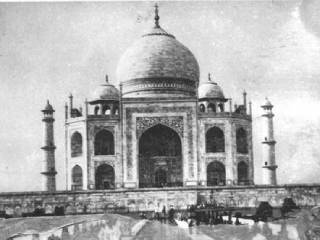Phalgun Shuklapaksha 7, Kaliyug Varsha 5115
We should be shocked and outraged that the terrorists who killed a former Prime Minister and a Chief Minister and many innocent citizens have been allowed to escape the gallows. We have been witnessing an outpouring of compassion for these killers, with Governments taking their own time to decide on their mercy pleas and thus providing them with an escape route; the courts using executive delays as a pretext to remit their death sentences; and politicians exploiting court verdicts to announce the release of the convicts. These are not signs of a country that claims to possess unflinching determination to fight terrorism.
If the authorities cannot execute the most stringent punishment that the law provides to anti-India elements caught and convicted within the country, there is little hope they can ensure that terrorists operating from across the border are brought to book by the respective Governments. There is an even slimmer chance of our laying hands on those hate figures that flourish on foreign soil and routinely plot and threaten to wreak havoc on India. After all, even if we catch them — which is next to impossible in the given circumstances — or get them on a platter through an extradition process, we could end up providing justice more as a farce than as a form of detriment. Abu Salem is a good recent example.
To understand what it means to truly crack down on terrorists, on elements that threaten the sovereignty and integrity of the country, and on all those who collaborate in such nefarious designs, we need to look no further than Israel — a nation smaller in size and resources than India, and surrounded by more and better equipped hostile forces too. It has successfully fought multiple wars, with enemy forces at times stacked together. It has tracked its enemies on foreign soil and eventually eliminated them. No wonder, therefore, that Israel is admired, and feared as much as it is loathed by its foes in all parts of the globe.
By contrast, hate-India terrorists and rabble-rousers like Hafiz Saeed taunt us on a daily basis from across the Line of Control, and the country's most wanted terrorist Dawood Ibrahim lives a lavish life in Pakistan and elsewhere without the slightest fear of being caught and made to pay a price. We can only seethe with impotent anger.

To appreciate just to what extents Israel can go and has gone to punish its enemies, one needs to read authors Michael Bar-Zohar and Nissim Mishal's riveting book, Mossad: The greatest missions of the Israeli secret service. The narrative will leave us wondering: Why is it that political courage and the almost manic will-power to bring to book perpetrators of crime against the nation thrive in Israel but are dead in India?
The long list of explanations that apologists will have on offer, ranging from the obvious to the abstract to finally the simplistic, ‘India is not Israel', is meaningless. The bottom line remains unchanged, which is: We have failed to punish terror whereas Israel has succeeded.
The book has close to 20 high-profile cases that Mossad handled, some of which ended disastrously for the agency. From our perspective, a few of them stand out for the audacity of execution, the extraordinary intrepidity of the agents, the huge dangers involved in the operations and the unstinted political backing to them.
Can you imagine for a moment the Prime Minister of India walking into the country's external intelligence agency's office to listen to and approve of a plan to eliminate one of the most dreaded anti-India terrorists living abroad? The authors of Mossad begin the chapter, ‘The cameras were rolling', with an account of Prime Minister Benjamin Netanyahu walking into a meeting of senior Mossad operatives including its head Meir Dagan, in early January 2010, and green-signalling the secret agency's plan to assassinate key Hamas leader Mahmoud Abdel Rauf Al-Mahbouh in Dubai. The agents completed their task.
But perhaps among the most audacious exercise Mossad has undertaken, again with the full blessing and backing of the political establishment, was at Entebbe in Uganda. This is also among the most legendary of its operations. In June-end of 1976, Arab and German terrorists hijacked an Air France airliner on its way from Tel Aviv to Paris and landed it in Entebbe, in what was then the despotic Iddi Amin's Uganda. The terrorists held 95 Israeli civilians hostage. A week later, in the dead of night, four Israeli planes carrying commandos, undetected by Ugandan radar, landed at the Entebbe airport. One of the leaders of the groups which participated in the operation was Yoni Netanyahu, brother of future Prime Minister Benjamin Netanyahu. He lost his life, but the commandos rescued the hostages and killed the terrorists.
Everybody has heard of the September 5, 1972, massacre of Israeli team members at the Munich Olympics. What is fascinating is the doggedness with which Mossad tracked down members of the terrorist organisation which went by the name of Black September, responsible for the attack. It was created, ironically, by a future Nobel Peace Prize winner, Yasser Arafat. The authors of the book have in their account titled, ‘The quest for the Red Prince', narrated the determination of then Prime Minister Golda Meir to bring to justice the perpetrators of the crime. She cleared Mossad's proposal to unleash the agency's operatives to hunt down every single Black September member who had participated in the Munich massacre, wherever he or she was. “Send the boys”, she told her security apparatus heads after thinking long and hard. The hit teams that Mossad formed eventually, in the ensuing months, eliminated the terrorists, including Ali Hassan Salemeh, then perhaps the closest aide of Arafat.
So, here’s the contrast for those who have still missed it: We remit capital punishment of terrorists in our custody and the Israelis track down and then eliminate their enemies — whichever part of the world they are in.
Of course, no account of Mossad's exploits is complete without the fascinating story of how it got rid of one of the most dreaded and hated Nazi criminals, Adolf Eichmann. Israel's then Prime Minister David Ben-Gurion had responded to his intelligence head's opinion that Eichmann could be captured and brought to the country, with the following words: “Bring him dead or alive… It would be better to bring him alive. This will be very important for our youth.” And that's how Eichmann was tracked down in Argentina and brought to Israel. His trial began in April 1961, and he was sentenced to death in December. Five months later, he was executed and his ashes were cast in the Mediterranean.
If it has a desire to learn lessons in internal security, India can do so from Israel. Else, it can continue to pardon its enemies, which will encourage others waiting in the wings to strike at this country and its people.
Source : Daily Pioneer

 Mizoram: EC accepts Christians’ demand to defer counting on Sunday, but what if Hindus had made a similar demand?
Mizoram: EC accepts Christians’ demand to defer counting on Sunday, but what if Hindus had made a similar demand? Sign Petition : Immediately repeal the draconian and unconstitutional ‘The Waqf Act, 1995’
Sign Petition : Immediately repeal the draconian and unconstitutional ‘The Waqf Act, 1995’ Shriram : Sri Lanka’s saviour
Shriram : Sri Lanka’s saviour Why it is so cool to malign Hindu gods and goddesses, but it may not be that easy now
Why it is so cool to malign Hindu gods and goddesses, but it may not be that easy now Shocking Truth of Taj Mahal exposed by Late Pujya P. N. Oak
Shocking Truth of Taj Mahal exposed by Late Pujya P. N. Oak How are Hindus treated in states where they are in a minority?
How are Hindus treated in states where they are in a minority?